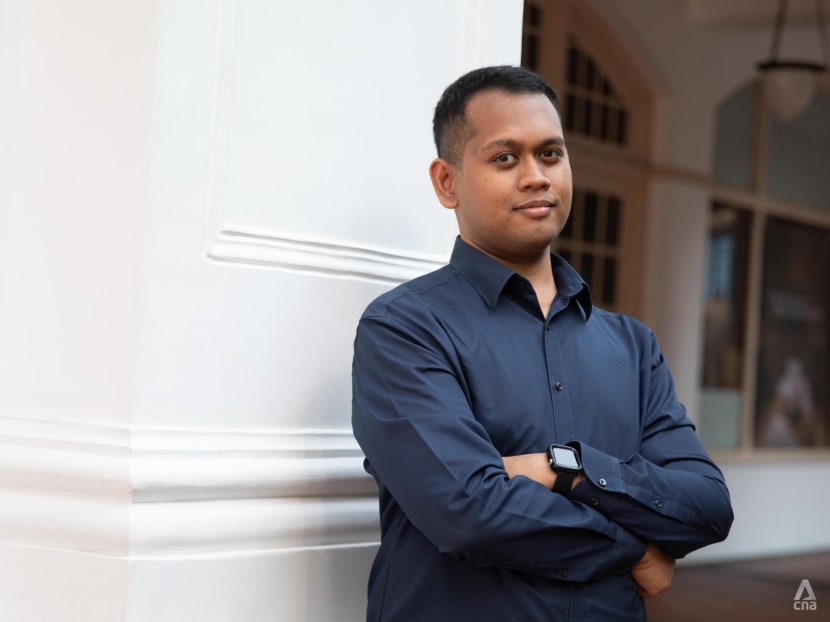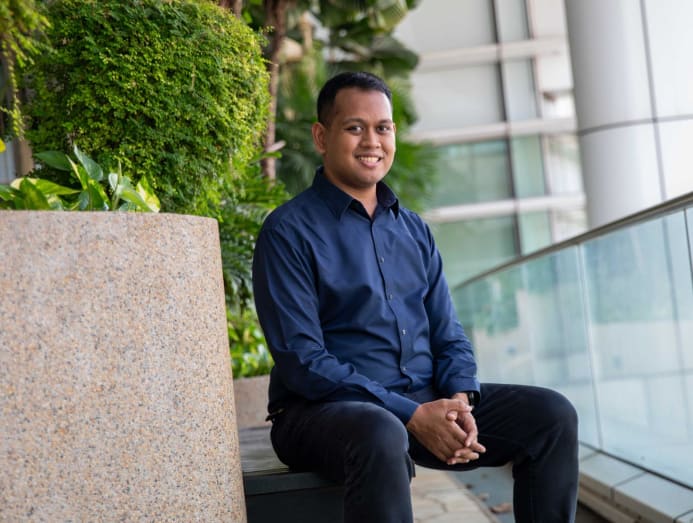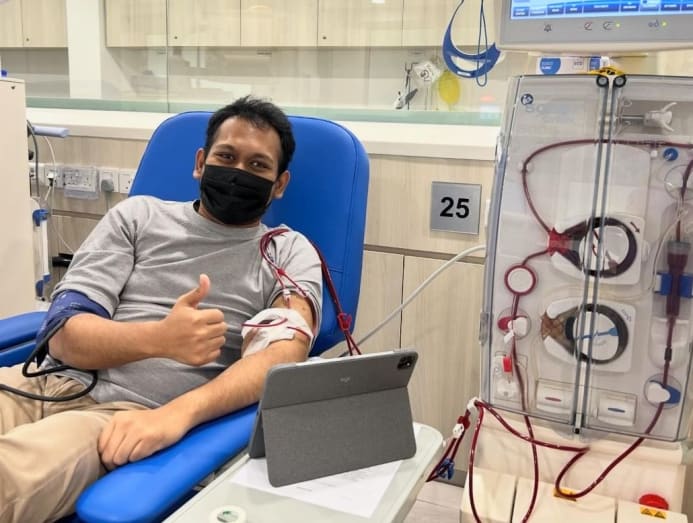I have end-stage kidney failure. It takes a lot out of me, but I'm committed to upskilling
This 29-year-old UX designer knows better than most that life is short. Here's why going the extra mile in planning for the future matters even more to him.

Mr Nathaniel Alejandrino (pictured) left his job earlier in 2024 to pursue a career in user experience design. (Photo: CNA/Lim Li Ting)

This audio is generated by an AI tool.
In July, I started working as a user experience (UX) designer at a retail company.
For most people, this wouldn’t be anything remarkable, but getting here was trickier for me than most — not because of the learning and upskilling required, but because I have end-stage kidney failure.
LEARNING ON MY OWN
I was diagnosed in 2017, at the age of 22. My condition means that my time and energy are limited, and my lifespan is likely going to be significantly shorter than the average person’s.
At that age, I had no health insurance and limited financial means. So I set my sights on making ends meet, landing a job in sales and customer service at a precious metals retail store.
I was grateful for my understanding colleagues and managers who offered me flexibility in my work schedule to suit my dialysis treatment schedule. It enabled me to focus on saving money as I waited for a kidney donor and transplant.
However, I could not shake off the desire to take up higher education.
During the COVID-19 pandemic, I developed a keen interest in technology-enabled activities after seeing how quickly people embraced online services and how the world was rapidly becoming more digital-first, with the spotlight turning on artificial intelligence (AI).
It became clear to me that the economic and business landscapes were shifting dramatically.
I saw this as a pivotal moment to launch myself on a different career trajectory, to explore the many possibilities out there and grow in ways I never thought I could.
In 2021, I was thrilled to be accepted into a part-time degree programme at a university here. Unfortunately, I was also having consistent issues with my arteriovenous fistula — a connection between my artery and vein that was supposed to make my dialysis treatments more efficient.
With a heavy heart, I had to decline the offer. Taking on more student debt on top of growing healthcare bills and treatment complications just didn’t seem feasible.
Pursuing a traditional full-time degree programme was surely out of reach, so I started looking towards various alternatives to learn new skills.
I wanted to be resourceful, to try and make the most of what was available to me in my limited capacity.

I explored digital platforms such as LinkedIn Learning, Coursera, Udemy and Codecademy. I dipped my toes in various courses that struck my interest, beginning with online short courses and working towards getting certifications on the basics of UX, user interface (UI) design and generative AI, among others.
PERSEVERING THROUGH SETBACKS
UX design was a compelling choice, due to my sales and customer service experience as well as my polytechnic diploma in product and industrial design.
In 2023, I started my search for a UX design course provider and eventually found one in General Assembly, an international outfit offering courses in coding, data and design.
Apart from being well-reputed with branches in other cities such as London, Paris and Sydney, it also offered hybrid study arrangements, which was essential to me as I still had ongoing dialysis treatment sessions three times a week.
For students, it offered subsidies under its Tech Immersion and Placement Programme, which would lessen my financial strain.
I left my job in January 2024 to pursue the course, even though it meant forgoing an income and living off my savings.
However, after enrolment, the reality of juggling a study programme and a demanding dialysis schedule quickly came crashing down on me.
I initially struggled with the intensity of the coursework. Discouraged at failing my first graded course project, I considered quitting.
Reflecting on why I decided to pursue the programme in the first place, I was reminded that while learning new things can indeed be difficult for anyone, failures are just part and parcel of life.
Instead of quitting, I thought instead about how to adjust to the demands of the programme.
Over the next three months, I managed to attend my on-campus classes on Mondays and Tuesdays, then leave for my treatments at 5pm. I would attend my classes remotely for the rest of the week.
I even conducted user interviews during my dialysis sessions to make the most of my time because I didn’t want to lose sleep.
Thankfully, I had very supportive peers, instructors and career coaches. My classmates were especially willing to help one another, with everyone pitching in and exchanging constructive feedback even during late nights.

A NEW PATH
I’m grateful and fulfilled in my current role, making customers and workers happy through good design, but I feel driven to go even further and deepen my design knowledge and skills.
In my spare time, I’m still taking up online courses to enrich my knowledge — but between work, treatment and my personal pursuits, there is always a delicate balance to be struck.
At this point, you may be wondering: Why bother with all this? Isn’t life as an end-stage kidney patient hard enough?
But that’s why planning for the future matters even more to me.
I want to live independently and avoid adding to my parents’ financial stress. I aim to help them retire peacefully, without worrying about me.
My medical treatments are expensive, but while I am still young and capable of working hard, planning ahead helps me hedge against the uncertainties of the future.
My time may be limited, but that is why it’s even more important to spend it meaningfully.
Regardless of what challenges we face in life, remember that life itself is a gift.
My medical condition does not define who I am or who I can be. My dreams and goals matter, as much as anyone else’s.
If you’ve been struggling to grow and stretch your potential, I hope my story helps you find the courage to do something different, to take opportunities and risks when they come.
It may be difficult and uncomfortable, but there is beauty and honour in perseverance.
Nathaniel Alejandrino, 29, is an information architect at a retail company.
If you have an experience to share or know someone who wishes to contribute to this series, write to voices [at] mediacorp.com.sg with your full name, address and phone number.






